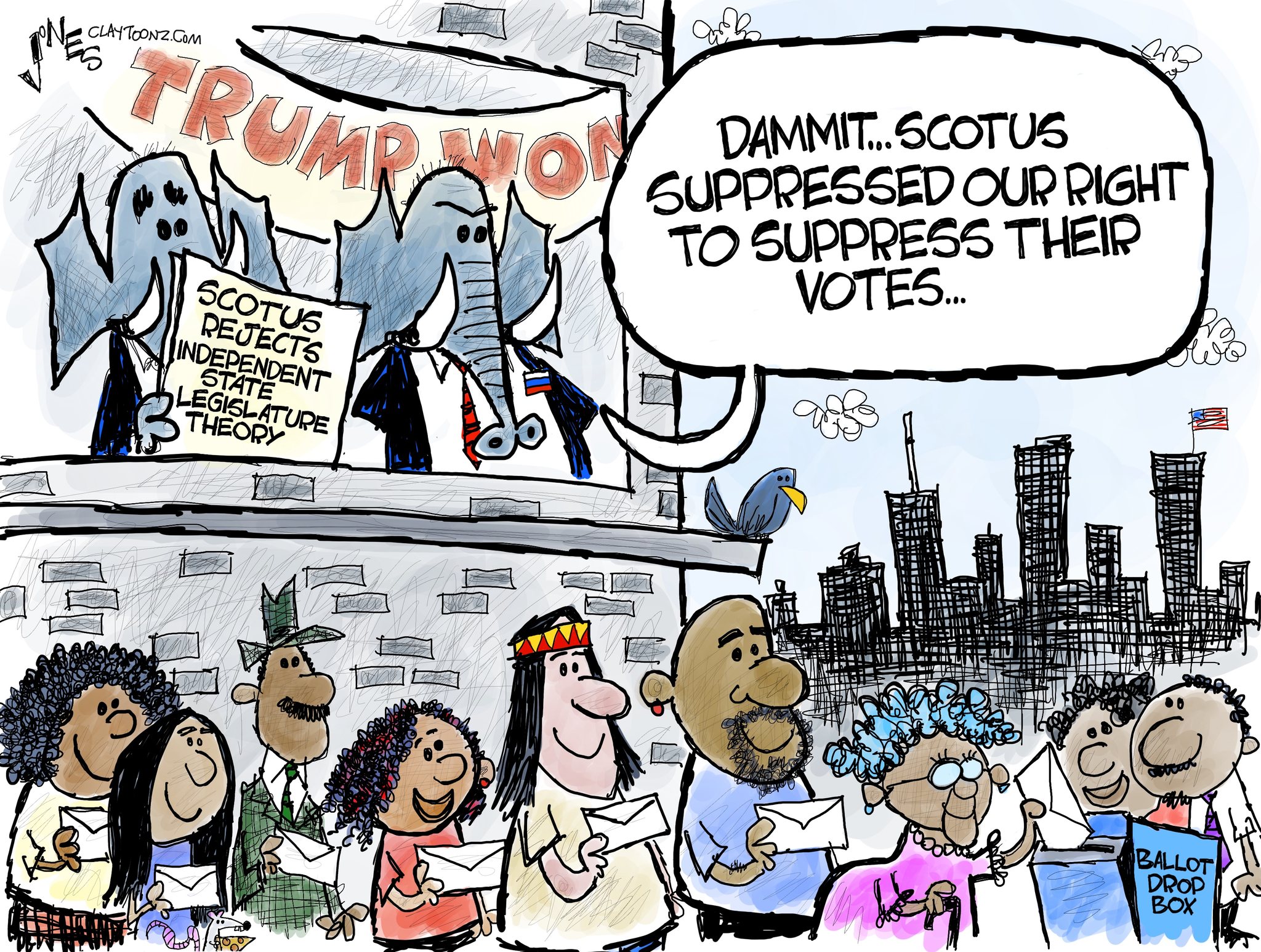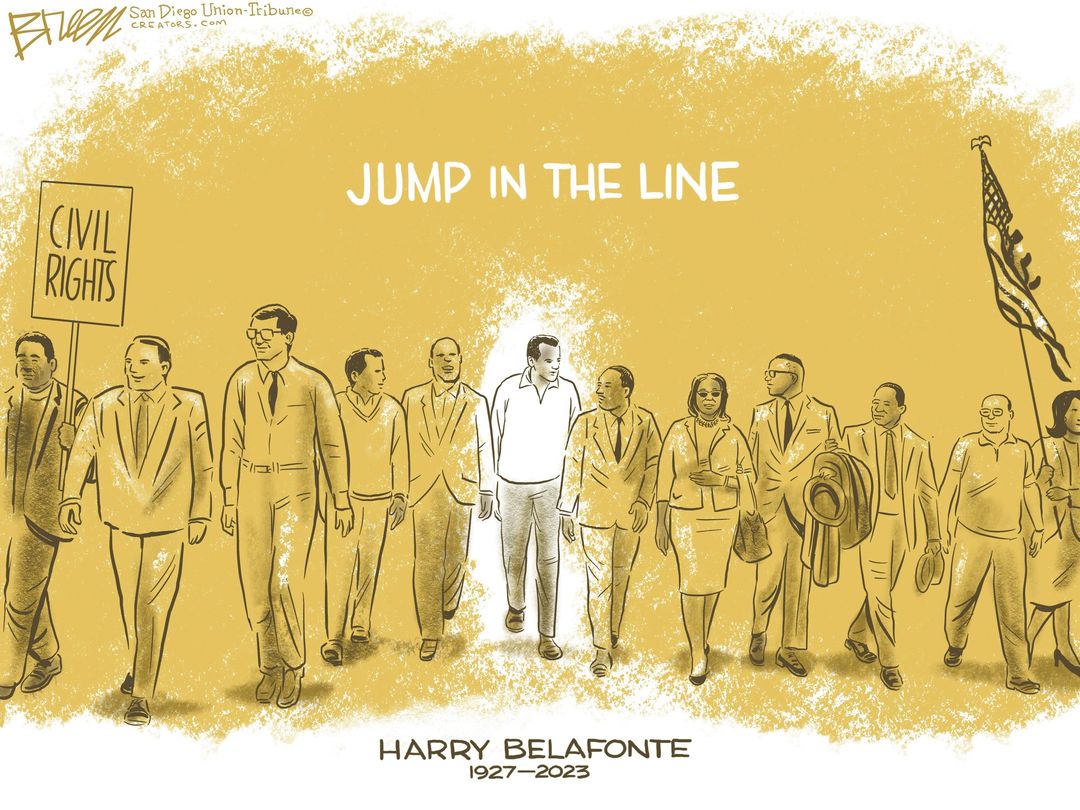The Daily Escape:

Squam Lake, NH – December 2023 photo by Robert John Kozlow
”If you aren’t paying attention to the courts, you aren’t paying attention to democracy”. – Mark E. Elias
The Colorado Supreme Court’s ruling that Trump is disqualified from appearing on the state’s presidential primary ballot because he engaged in insurrection was a bombshell. The plaintiffs included four Republican voters and officials, and two Independents. The organization bringing and managing the lawsuit was CREW and its chief attorney, Marc Elias, quoted above.
Some people are saying that it doesn’t seem right to toss him off of the ballot without a conviction. At issue is whether Trump is such a danger to the country that he’s ineligible to be a candidate at all, and the Colorado Court’s reasoning for this seems very tight. It’s not an interpretation about his rhetoric or an evaluation of his political extremism. It’s solely a determination of whether he took an oath to protect the Constitution, and then fomented an insurrection against the government. And although the verdict was 4-3, all seven judges agreed that Trump had fomented insurrection.
The Court found that he’s ineligible. Regarding the “he must be convicted to be ineligible” argument: The criminal cases against Trump that are wending their way through the courts are varied in their accusations. None of them were brought solely or even primarily to prevent Trump from being elected president, although the Colorado case was. The others charge real crimes. The importance of those cases transcends the individual who committed them. A failure to bring them would set a precedent that we as a country think these behaviors permissible by a future president.
As for letting the people decide about Trump, we did that already. Biden got seven million more votes than Trump. Yet Trump’s still spouting the Big Lie that the election was stolen. Even after 60 court cases, Trump couldn’t prove there was any election fraud. Conservative Judge Luttig says that the 14th Amendment isn’t about removing someone from qualifying for office. Rather it’s about meeting a baseline qualification in order to be considered a QUALIFIED candidate.
There’s also an argument on the Right that Trump shouldn’t be in court at all. But we have a Justice system and in the Colorado case, the legal process was followed. The Court didn’t take any shortcuts; no extraordinary maneuvers were made.
Jon V Last asks why Republicans were on one side of the law in 2020 and on a different side today: (brackets by Wrongo)
“So ask yourself this: All throughout December 2020, everyone insisted that, no matter how foolish or baseless President Trump’s claims might seem, he was entitled to pursue the legal process vigorously to its end.
Why is that not true in this case? Why is it that Trump…[in 2020 was] entitled to have his day in court, but the forces [today] looking to apply different laws to a different end are not?”
Last reminds us that many of the same people who insisted that Trump could pursue all available legal remedies in 2020 wanted a result that would keep him in power. Now, they’re outraged that the people in state of Colorado also pursued legal remedies and won a result that might keep him from returning to power. There’s more from Jon Last. Those who are complaining about the result in Colorado are complaining not about the legal process, but the legal result:
“Have you ever noticed how, whenever Trump does something terrible, there is always an argument that holding him accountable can only help him?
You can’t impeach him in 2020, because it’ll just make him stronger.
You can’t impeach him in 2021, because you’ll turn him into a martyr.
You can’t raid Mar-a-Lago to take back classified documents because you’ll rile up his base.
/snip/
There is a…..helplessness to that thinking: A wicked man does immoral and illegal things—and society’s reaction is to say that we must indulge his depredations, because if we tried to hold him accountable then he would become even worse.
Is there any other aspect of life in which Americans take that view?
That’s not how parents deal with children.
It’s not how regulatory agencies deal with corporations.
And it’s not how the justice system deals with criminals.”
From Robert Hubbell: (emphasis by Wrongo)
“Every hesitation, reservation, and exhortation to ‘make an exception’ because of potential violence or political chaos is an invitation to abandon the Constitution. We do so at our grave peril and possibly for the first, last, and only time—because if we set our great charter aside once, there is no logical stopping point for setting it aside again when it serves the pleasure of a president who views the Constitution as an obstacle rather than a safeguard.”
The Colorado Supreme Court’s decision to ban Donald Trump from the state’s primary ballot for engaging in insurrection is probably on its way to the US Supreme Court. Wrongo isn’t a lawyer, so you should look elsewhere for a discussion of the finer points of the law in this case, and he has no confidence that the Supremes will decide against Trump.
But Wrongo wants to address one item, the question of whether a candidate should be tried while running for office. Just the Mar-a-Lago charges of mishandling highly classified information and then obstructing their return makes it clear that he should be tried regardless of his candidacy. The government needed to secure the secret documents Trump had stashed all over his club. Trump thwarted those efforts. And the case was developed before Trump declared himself as a candidate for 2024.
A thought experiment: Let’s imagine that Robert E. Lee or Jefferson Davis had run for US president in 1868. Either of them could probably win a solid South and be competitive in several border states. Making sure that they didn’t win at the ballot box what they couldn’t on the battlefield is why Clause 3 was included in the 14th Amendment in July, 1868.
Would supporters of Lee or Davis have complained that they were ineligible for public office? Certainly! But, too bad. Insurrection and rebellion (still) have consequences. And nobody said that they had to be convicted before being ineligible.
When a president of the US loses an election and attempts to stay in power through violence, there really is no way to deal with it that doesn’t have a political component. But that means nothing to the merits of the case. Should we prosecute it only to the point that the ex-president decides to run again, and then drop it?
The whole Republican “let the voters decide” talking point was trotted out after the Colorado decision. It’s hilarious. We did that. We did let the voters decide. Biden won. And Trump refused to accept the results and sent a violent mob to overturn it. That’s the whole point of this case. We must apply the Constitution and the rule of law to Trump in the same way it would be applied to any other citizen.
Whatever lies ahead, let’s not underestimate the significance of the Colorado Court findings. They will figure prominently in the outcome in 2024. Our job is to fight for the soul of democracy and for a free and responsible government by popular consent.
Let’s close with a Christmas tune that is new to Wrongo: The Tractors perform their 2009 hit “The Santa Claus Boogie”, from their second album, “Have Yourself a Tractors Christmas”. The band no longer exists, as several of the members have died:

 Biden sees through the turkey:
Biden sees through the turkey:




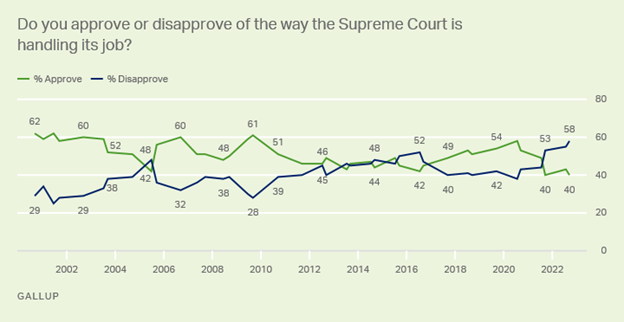

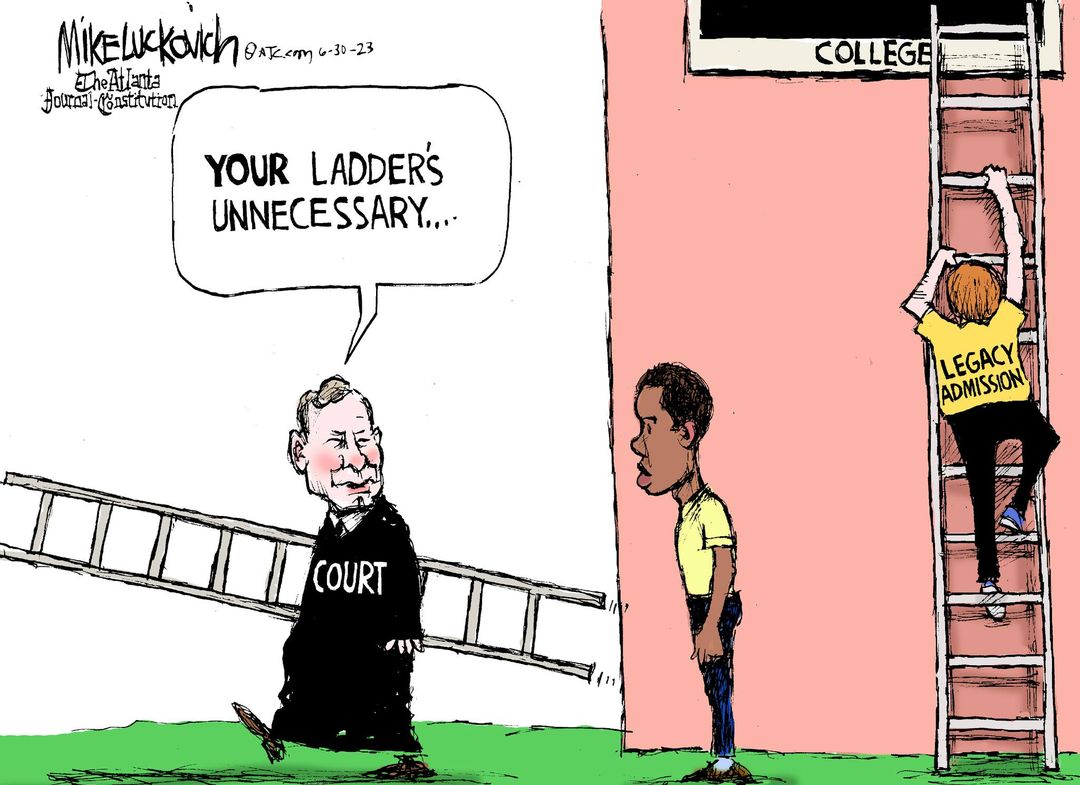
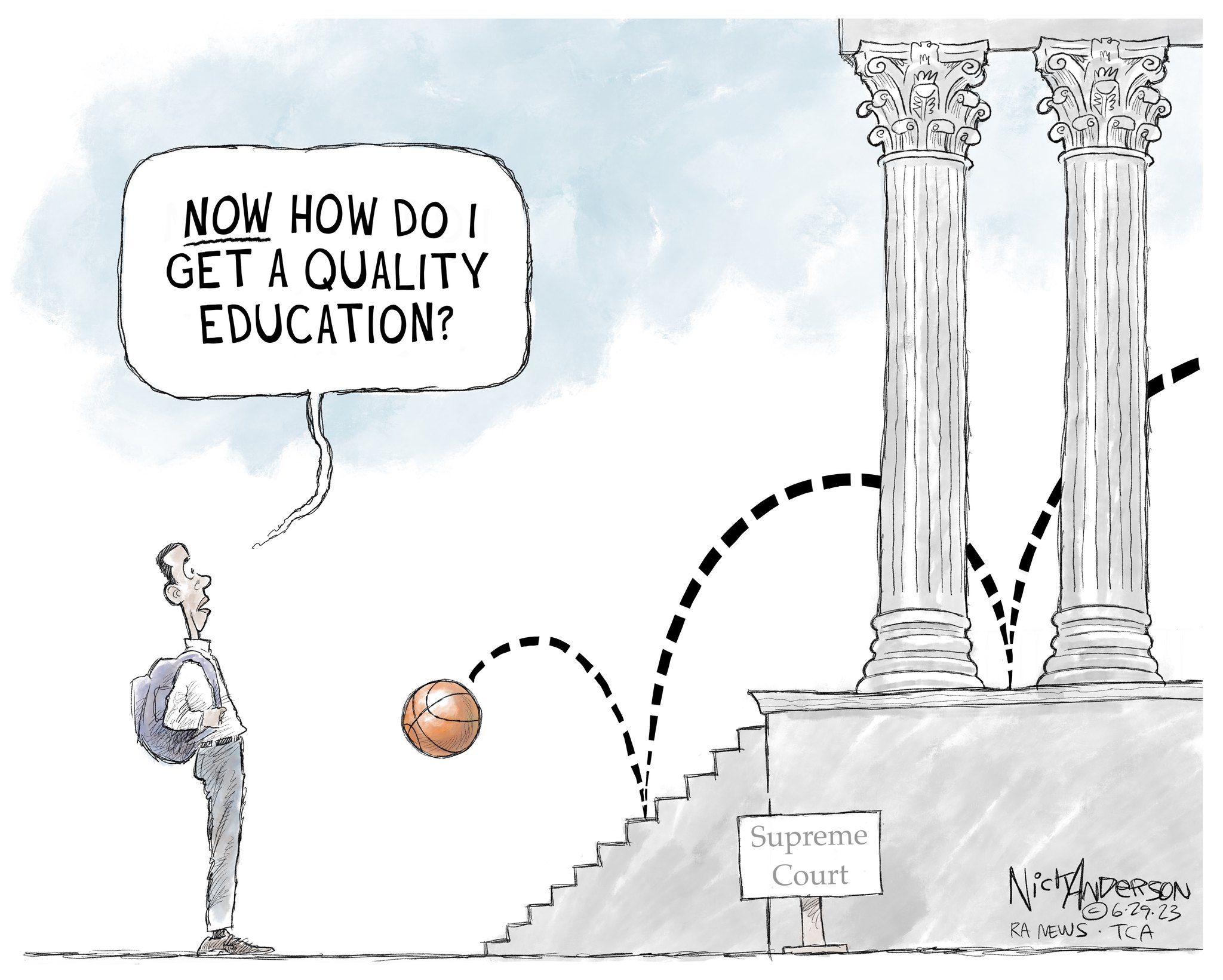

 Some of the Supremes’ action is definitely affirmative:
Some of the Supremes’ action is definitely affirmative:
